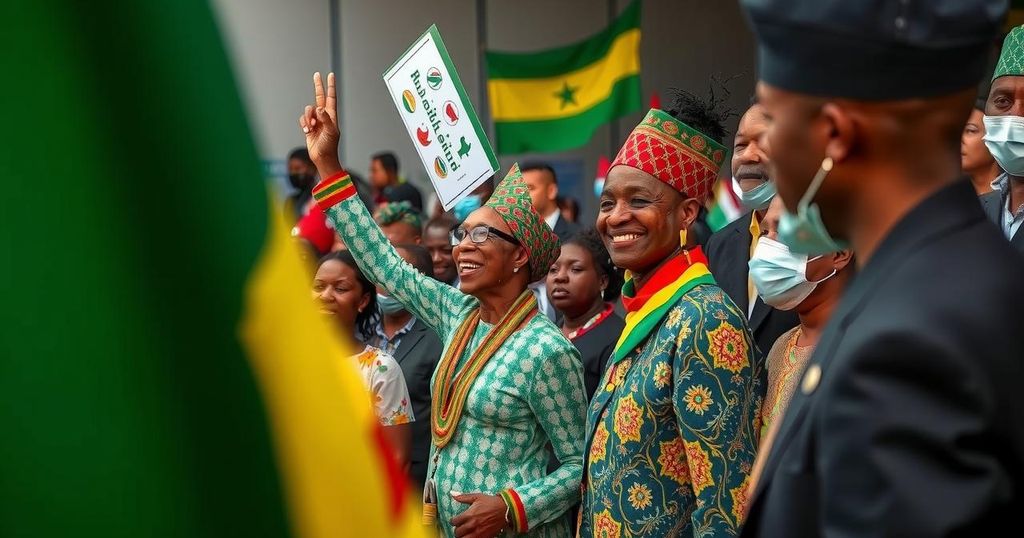Senegal’s Elections: A Triumph for Democracy and Future Challenges

Senegal’s recent snap legislative elections on November 17 marked a crucial moment for democracy, with President Bassirou Diomaye Faye’s election following former president Macky Sall’s decision to step aside. Voter turnout was impressive at 61.3%, demonstrating significant public engagement. However, challenges such as corruption and governance issues remain. Faye has pledged to ensure transparent governance as the nation seeks to strengthen its democratic institutions.
Recent elections in Senegal have underscored a significant triumph for democracy within the country. Following a tumultuous period characterized by civil unrest and protests over the former president’s controversial decisions, President Bassirou Diomaye Faye was elected in a snap legislative election held on November 17. Faye’s presidency marks a departure from his predecessor, Macky Sall, who opted not to pursue an unconstitutional third term, thus reinforcing the resilience of Senegal’s democratic framework. The high voter turnout of 61.3% during these elections indicates robust citizen engagement in the political process, reflecting the population’s commitment to democratic values. The peaceful nature of the election serves as a testament to Senegal’s democratic institutions, especially in the context of a region where many countries suffer from political instability. Notably, the ruling party, Pastef, appears to be on course to secure a majority in the legislature, a scenario met with concession from opposition leaders, including the former president. This willingness to engage in a democratic process demonstrates a pivotal step toward institutionalizing democratic norms and principles across the nation. Challenges to democracy persist, including issues such as corruption and weak governance, prevalent in many African states. While Senegal has fared relatively better in corruption indices compared to its West African counterparts, historical practices of clientelism and nepotism remain barriers to effective governance and public service delivery. President Faye has vowed to implement transparent governance practices to combat these challenges and restore faith in institutions. For Senegal to sustain its democratic resilience, it must adhere to key principles: honoring term limits, safeguarding citizen participation, and implementing reforms that strengthen judicial independence and electoral integrity. Furthermore, combating corruption and ensuring media freedom are essential for fostering a participative democratic culture. International frameworks, such as the African Charter on Democracy, provide guidelines which Senegal can follow to enhance its political integrity. In summary, Senegal’s recent electoral success underscores the importance of citizen engagement and adherence to democratic principles. The peaceful transfer of power signifies that meaningful political change is achievable through democratic avenues, presenting a model for other African countries navigating similar challenges.
Senegal has historically been viewed as a beacon of democratic stability in West Africa, yet recent events have tested its political institutions. The abrupt decision by former president Macky Sall to postpone elections in 2023 sparked significant protests and unrest among citizens, reflecting their frustrations with perceived erosions of democratic practices. However, the election of President Bassirou Diomaye Faye following Sall’s concession illustrates a resurgence of democratic adherence, highlighting public commitment to constitutional governance. The backdrop of these elections is characterized by a desire to reinforce enduring democratic institutions in light of regional instability.
The recent legislative elections in Senegal have underscored a reaffirmation of democratic values and processes within the nation. The commitment to peaceful transitions of power and high voter engagement indicates resilience and hope for further strengthening of democratic institutions. Nonetheless, the persistence of governance challenges necessitates continued efforts towards transparency and integrity to safeguard Senegal’s democratic future.
Original Source: theconversation.com







